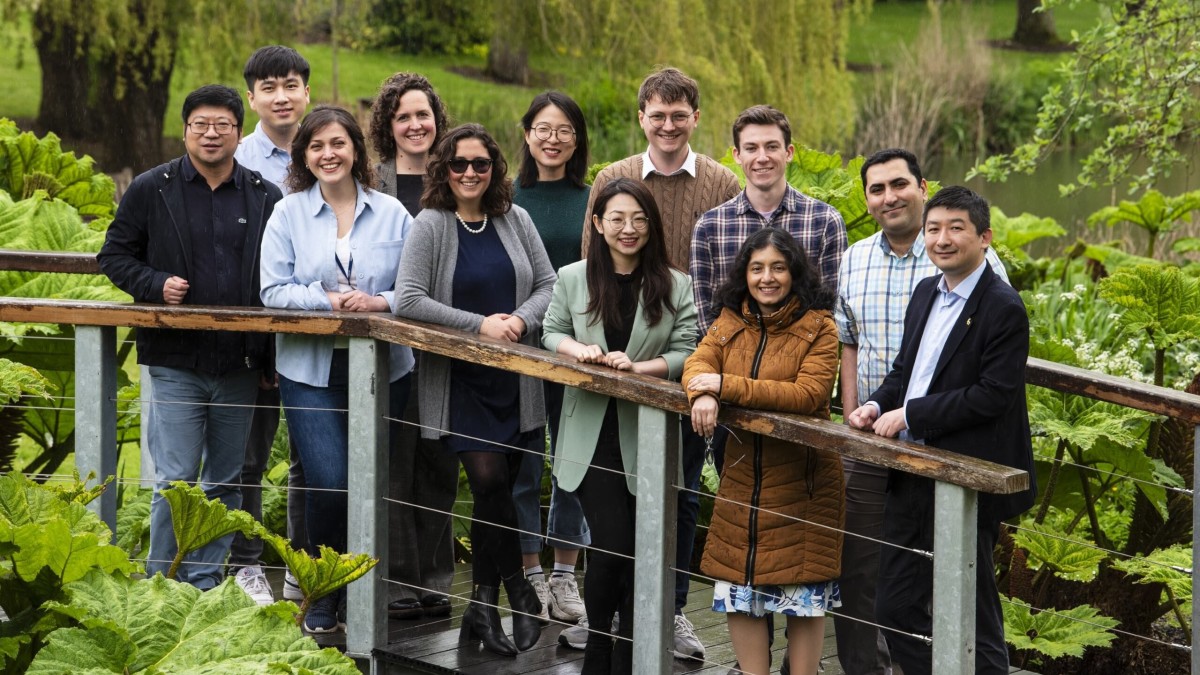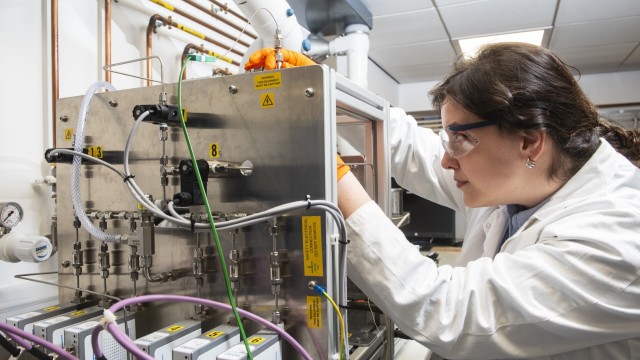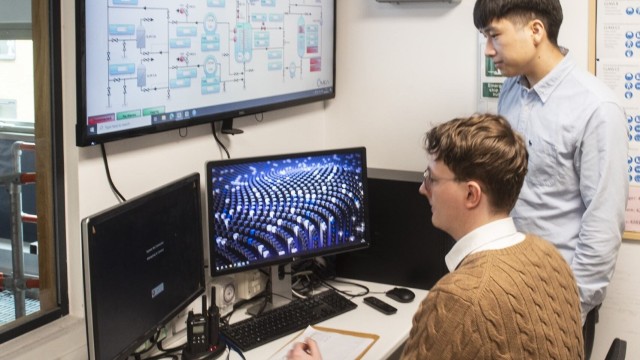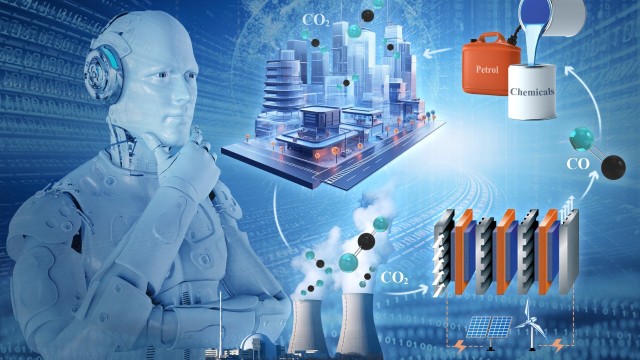Surrey Circular Economy Group
We are a unique, inclusive, interdisciplinary team that combines systems thinking with engineering and digital innovations to create new circular value chains for an equitable society.
Mission
Our team will form a critical mass with joint voice allowing thinking big to create the research excellence around circular economy at Surrey. We have the ambition to become a top circular economy group in the UK and internationally.

Members of the Surrey Circular Economy group.
Surrey Circular Economy Group brochure
Research areas
Circular technology
We are developing a range of key engineering solutions for resource efficiency and waste valorisation.
- Catalysis: designing efficient and cost-effective catalysts to transform waste streams into high-value materials
- Carbon capture: utilising advanced carbon capture and utilisation technologies to capture and convert CO₂ emissions into valuable chemicals
- Plastics recycling: converting discarded plastic products or waste into new materials or products, reducing the consumption of virgin resources and mitigating environmental impact
- Circular materials: developing materials to be reused, recycled, or repurposed within a closed-loop system, reducing waste and maximising efficiency
- Energy conversion: engineering sustainable and efficient processes to convert and store renewable energy into chemical-based energy.
Circular systems
Championing systems thinking and developing advanced methodologies to understand complex systems of circularity.
- Life cycle assessment: systematic analysis of the environmental impacts of products or services during their entire life cycle.
- Techno-economic analysis: combining technical analysis with economic analysis to assess the overall feasibility of circular economy-enabled technology or project.
- System circularity: finding the best possible solution for a complex system whilst maximising the circularity, allowing decision-makers to explore different scenarios and trade-offs.
- Socio-economic simulation: revealing how changes in technology, policy, and other factors can affect economy and society.
AI and digital
Harnessing the power of AI and digital tools to design, optimise and discover circular economy solutions. [see photo]
- Generative AI and deep learning: using AI as a tool for circular economy materials, processes and systems design.
- Hybrid and data-driven designs: developing novel methodology that can combine physics with data for design.
- Systems optimisation: understanding and optimising complex systems using digital tools.
- Optimal energy use: muti-scale modelling and simulation of materials, devices and processes.
Collaborations and outreach
Our group is funded by:
- EPSRC
- Innovate UK
- Royal Society
- Royal Academy of Engineering
- EU
- Industry.
We are part of £25M worth portfolio of projects ranging from national centres, hubs, prestigious Fellowships, and standard projects.
We work with the Institute for Sustainability, including the Plastics in the Circular Economy group. In 2024 Dr Hui Luo led a team who presented at the New Scientist Live 2024 exhibition in London.



